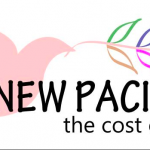The other day, I talked about how I’ve noticed over the past few months many Christians talking about “sexual ethics.” I mentioned that, even Christians trying to move away from shaming and purity culture often fall into this dichotomy of “marital sex as ethical” vs. “premarital sex as dangerous, objectifying, and trying to avoid consequences.”
I think sexual ethics are important. I also think they look a little different from person to person. And Idefinitelythink that views which dichotomize marital and premarital sex as “ethical vs. unethical” are bullshit, and can even be harmful.
So, I want to present four general guidelines that I think can help further conversations about healthy “sexual ethics.” 1. Consent. 2. Respect and affirmation of the humanity of self and others. 3. Emotional and health risks, and how to approach them. 4. The meanings that you and your partner attach to sex.
I want to talk about each of these in a little more detail. I’ll talk about points 1 and 2 today, and points 3 and 4 either tomorrow or later this week.
I want to start with consent, because when you’re talking about sex, ALWAYS START WITH CONSENT.

1. Consent:
Several feminists whose work I really appreciate, like Dianna Anderson and Libby Anne, have written about how a sexual ethic needs to start with consent. I fully agree. But I’ve seen responses to these bloggers that accuse them of saying that consent is the only factor one must consider when it comes to sex.
But…that’s not what these women are saying.
That’s not what any feminists that I know of are saying. We rally against media that treats women as sex objects. We fight for reproductive justice. It should be obvious that we’re not going around pretending that as long as people value consent that we don’t have to ever talk about anything related to sex again.
The reason we stress the importance of consent is because, first of all, it is FOUNDATIONAL. Without consent, we’re not talking about sex at all. We’re talking about assault or rape.
Secondly, we stress the importance of consent because NO ONE ELSE DOES. Okay, maybe not no one, but there are not nearly enough people in this world talking about consent, and often it feels that way. In Christian purity culture, it’s “you get to say NO before marriage, or you’re damaged goods,” or “you get to say YES after marriage, or you’re a selfish spouse.” In broader culture, there are so many tropes, that are considered romantic, about men grabbing unsuspecting women to kiss them. This shit is everywhere.
“Just wait until marriage” doesn’t fulfill the requirement of consent. Marriage is not an all-time consent to sex, and non-consensual “sex” within marriage is still rape. Rape that happens within marriage is just as devastating and traumatizing. As I’ve mentioned above, purity culture tries to tell people (especially women) that refusing to have sex with their husbands is a sin. This is spiritual and sexual manipulation and a violation of this guideline for ethical sex.
So, no, consent is not the end of a discussion on sexual ethics, but it is a very important beginning. If it seems like we’re overemphasizing consent, it’s because we live in a world that is constantly ignoring it.
2. Respect and Affirmation of the Humanity of Self/Others
This issue is really tied in with consent. Studies show that those who dehumanize others are more likely to be perpetrators of sexual assault. So, there’s the basis of this guideline. Don’t treat others as animals or objects.
Realize that people have emotions, opinions, boundaries, and autonomy over their bodies. They are not objects that you can do whatever you want with. I don’t care if you’re sleeping with your spouse (I don’t care what I Corinthians 7 says, you do not own your spouse) or with a sex worker (when you pay for sex, you are hiring someone to do a service for you. You are not buying the right to a person’s body).
Also, realize that YOU are a human, too, and you are allowed to draw and enforce boundaries. You are allowed to communicate your feelings about sex with your partner(s).
While there are definitely some general ways to affirm everyone’s humanity, realize that when it comes to specific sexual situations, how you respect people’s humanity is going to look different from person to person. Some people may love certain sex acts that others find degrading. I often hear Christians denounce certain consensual sex acts as dehumanizing, and say that other sex acts (usually penis-in-vagina intercourse) are always life-affirming, but this is something that can’t be universalized. People need to work it out with their partners.
A holistic sexual ethic can’t just assume, “I waited until marriage. Therefore I am treating my sex partner as a human, not a commodity.” How many times have you heard abstinence promoting messages that compare human beings to cars, cows, trophies, presents, bubblegum, etc.? While your convictions/opinions on abstinence may influence how you would like to be treated as a human (and it’s OKAY to express that to your partners, by the way), just because someone is abstinent or waited until marriage doesn’t mean they’ve already considered this point.
I’ll discuss the other two guidelines for sexual ethics later. Until then, what are some of your thoughts? How can we better ensure that we’re treating our sex partners as humans? How can we affirm our own humanity?















